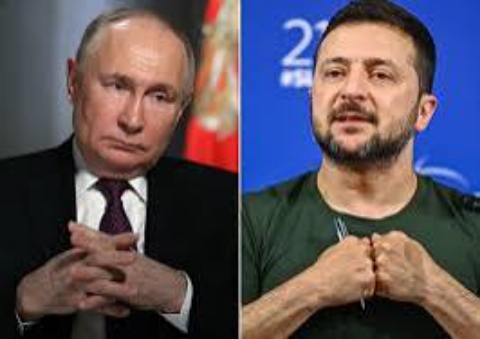Russia-Ukraine Peace Talks End Without Ceasefire Agreement, POW Swap Deal Reached

The second round of direct peace negotiations between Russia and Ukraine concluded on Monday in Istanbul without agreement on a ceasefire, despite urgent pleas from Kyiv and its Western allies. However, both sides did reach a humanitarian agreement to exchange sick and seriously wounded prisoners of war, as well as combatants under the age of 25, and to return the bodies of 12,000 fallen soldiers.

Ukrainian officials expressed disappointment at the outcome, stating that Russia once again rejected Ukraine’s proposal for an unconditional ceasefire. The Russian delegation instead suggested a limited, short-term truce “in certain areas” of the front line for two to three days—a proposal Ukraine dismissed as inadequate.


Ukraine’s Defence Minister Rustem Umerov, who led Kyiv’s delegation, reiterated the call for “a full and unconditional ceasefire across land, sea, and air for at least 30 days,” urging an immediate halt to hostilities to prevent further loss of life. He noted that Ukraine submitted its ceasefire proposal in advance, while Russia only presented theirs during the talks.
President Volodymyr Zelensky reacted bluntly to Russia’s offer. Posting on X, formerly Twitter, he wrote: “I think ‘idiots,’ because the whole point of a ceasefire is to stop people from becoming dead.”

While neither country officially released their ceasefire proposals, Russian state media outlined sweeping conditions from Moscow, including Ukraine’s military withdrawal from parts of Donetsk, Luhansk, Kherson, and Zaporizhzhia, recognition of Russia’s control over those territories and Crimea, a ban on NATO membership, the recognition of Russian as an official language, and the lifting of international sanctions.
Ukraine’s Deputy Foreign Minister Serhiy Kyslytsia also confirmed that Kyiv had submitted a list of hundreds of Ukrainian children allegedly taken to Russia by force, and said Ukraine expects a formal response to its broader proposals by the end of June.
Despite hopes for progress, the prospect of a direct meeting between President Zelensky and Russian President Vladimir Putin remains remote. Zelensky, speaking from Vilnius, Lithuania, where he was attending a regional summit, said: “While there are no meaningful signals from Russia to end the war, it is important to strengthen our defence.” He also called for tougher sanctions against Moscow.
At a separate briefing, Russian delegation head Vladimir Medinsky announced that Russia would return the bodies of 6,000 Ukrainian soldiers next week. Zelensky confirmed that Ukraine would reciprocate, but did not provide a specific timeline.
The first round of talks, held on May 16, also ended in stalemate, resulting only in an agreement to exchange 1,000 prisoners of war on each side.
Western leaders, including Zelensky, have repeatedly accused Russia of using negotiations as a stalling tactic while consolidating territorial gains. Meanwhile, in Washington, White House spokesperson Karoline Leavitt said President Donald Trump remains open to brokering a possible three-way summit involving himself, Zelensky, and Putin “if it comes to that.”
“He wants both of these leaders and both sides to come to the table together,” Leavitt stated.
Trump has previously criticised Putin for his conduct in the war, calling him “absolutely crazy” after a major missile and drone barrage on Ukraine. The Kremlin, in turn, dismissed Trump’s comment, suggesting he was in a state of “emotional overload.”
As the conflict grinds on with no ceasefire in sight, the humanitarian cost continues to mount, and hopes for a negotiated peace remain distant.

